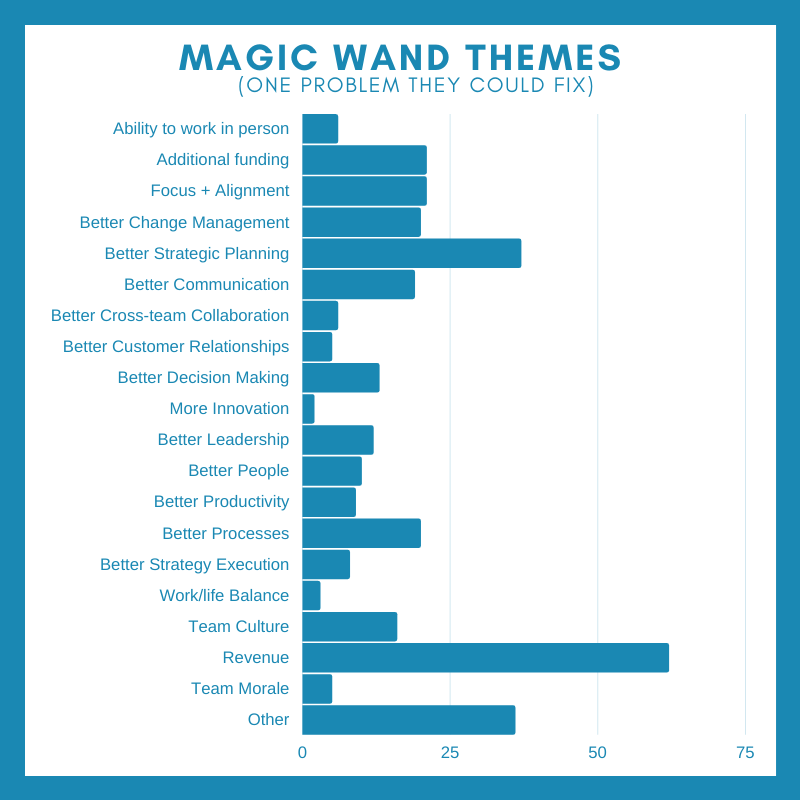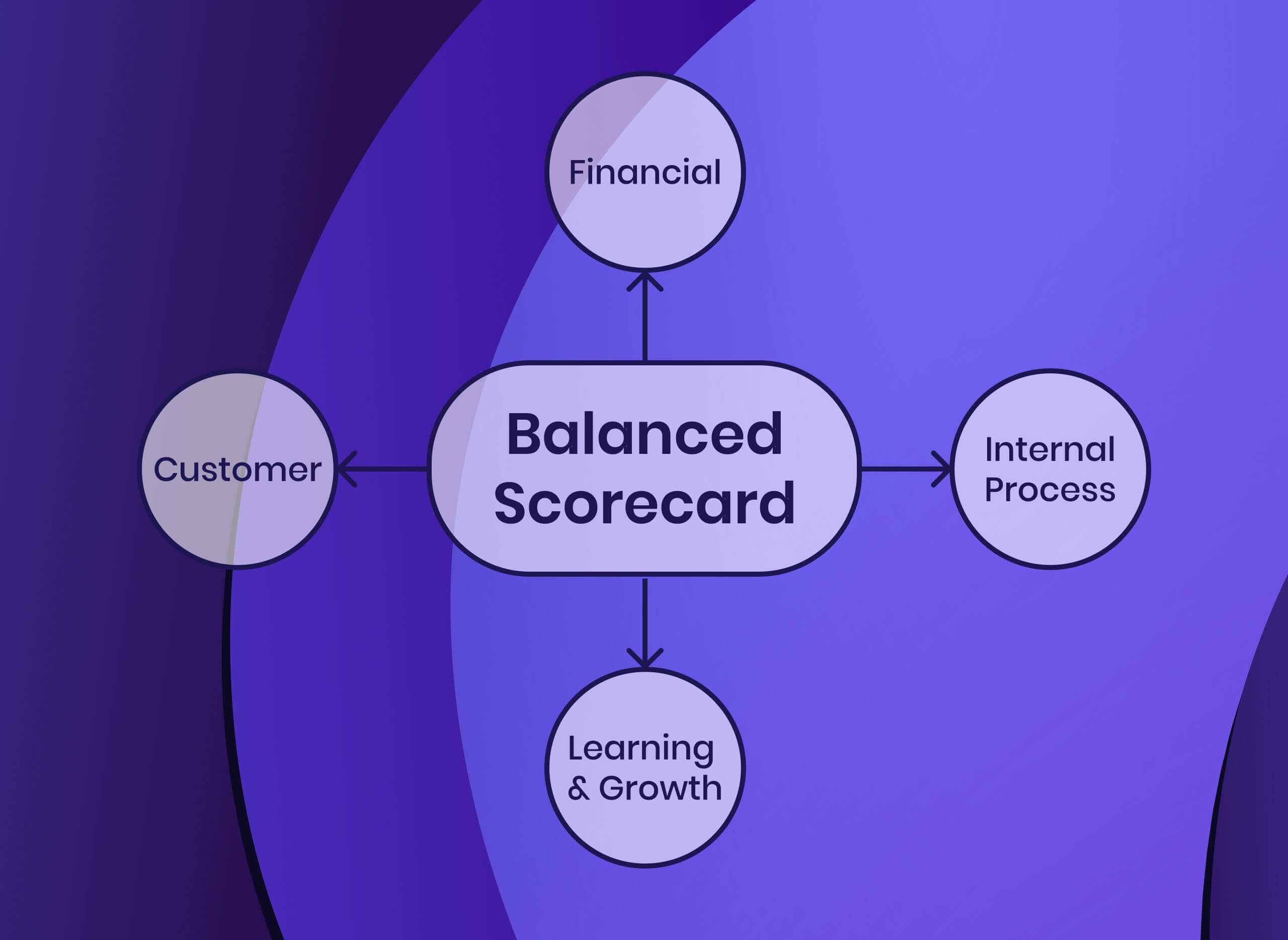We recently sent a survey to our readers, asking them to share some experiences of how their organizations have responded to the crisis created by the COVID-19 pandemic. In this blog post, we will share some of their insights!
Here are some of the highlights we’ll discuss:
- Key responses and standout statistics
- Key takeaways from the responses
- How YOU can apply these takeaways through Cascade for FREE!
Key Responses and Standout Statistics
We split the survey into 4 key areas:
- Background information around the respondents and their teams
- Their experience around COVID-19
- The organization’s response to COVID-19
- The role of strategy, planning and focus in relation to the crisis
{{cta('af09902e-ce5b-4b11-952a-49bc058cad23')}}
1. Background information around respondents and their teams
There were over 350 responses in total, with 88% of people who responded to the survey leading a team. 28% are CEO or Founders while an additional 11% are on the board or leadership team.
46% were from organizations with less than 50 people, with the majority having teams of 10 people or less.
We had people across all industries respond, with professional services, education and nonprofits in the top 3 industries, and mining and real estate with smaller representations.

2. Their experiences around COVID-19
The findings from the survey respondents were as we expected based on what we have heard about the impact of COVID-19 on businesses globally.
- 52% of respondents indicated that COVID-19 has had a substantial impact on their organization.
- 76% describe the impact as negative while 12% have experienced no impact at all.
- 9% of respondents indicated a positive impact on their organization!
- 66% have reduced their cost base in response to COVID-19. The reduction in costs has been across all areas of the business in most cases.
- 40% have taken advantage of government assistance during the crisis.

3. The organization’s response to COVID-19
We asked about how COVID-19 has changed the way organizations are working.
- 45% are now working remotely when they have not before.
- 81% are now using Zoom or other video conferencing tools.
- 46% have started using online chat collaboration tools.
- 56% believe that the changes to the organization as a result of COVID-19 will have a lasting impact.
“We already used meeting tools (e.g. Zoom) and communication tools (e.g. Slack), but their use has increased and become more important.”
In terms of focus, we found that most organizations are trying to focus on 2-3 key objectives and are either quietly planning for the future or continuing to execute their pre-COVID-19 strategy.

Most organizations that responded to the survey have been very proactive in taking action to respond to the crisis. 60% have collaborated with their team, 54% have re-budgeted and re-visited their strategy, and re-planned.

We also asked about what specific actions they have taken, and if the actions were worthwhile. These results have been summarized below.
- It was great to see that 18.4% of organizations have been able to use the crisis to create new opportunities for their businesses. Most were able to do this by moving their offerings online.
- 15.6% of organizations have been able to use COVID-19 as an opportunity to introduce new methodologies to the business, such as agile working practices.
- 16.7% have cut costs and closed projects or business units to ensure the organization’s survival.
Here's a wordcloud of some of the responses given:

“We're automating all our processes to make remote working easier. We've also implemented stricter hygiene policies. We're currently setting up Cascade.”
The reason these actions were effective was that they:
- Gave clear direction and focus to the team
- Kept the team busy and engaged
- Allowed the organization to demonstrate core values
- Allowed for the flexibility to work from home
- Improved health and safety
- Allowed new income to be generated
- Ensured business survival
- Improved customer relationships
“Because we are able to do something different aligned to the new needs of our clients. We saw COVID as an opportunity to move faster to our goals”
We were interested in exploring how "focused" organizations are during the crisis. Although the question is somewhat leading, it was interesting to see the response, and to have some respondents select that they were not focused at all, while the majority of the responses stayed between the 5-8 range. This indicates that there are still obstacles to them focusing on their organizational goals, even with the pressure and motivation created by the crisis.

We were also interested to know if teams are handling the disruption well and if they are normally resilient to change. Unsurprisingly, there seems to be a direct correlation between teams that feel they handle change well in general and those that feel they have handled the COVID-19 disruption well.


{{cta('af09902e-ce5b-4b11-952a-49bc058cad23')}}
Wave Your Magic Wand...
We wanted to find out what is the biggest pain point for respondents right now. We asked “If you could wave a magic wand what is the one problem you would like to fix in your organization right now (other than a vaccine for COVID-19)?”

We received a broad range of responses which have been summarized in the chart above.
- 80 respondents reported that the one problem they wanted to be fixed was additional revenue streams or additional funding to support government or community work.
- 35 respondents wanted their organization to undertake better strategic planning in response to COVID-19.
- A number also wished for their teams to be more focused and aligned, with better communication and change management.
On the topic of leadership and decision making, respondents reported the following frustrations:
- Lack of drive to create a vision for the future from the board of directors
- Wanting leaders to feel more empowered to take a risk and make a decision. They are waiting on me to tell them what to do.
- To have a faster response and decision-making process while keeping everyone included in the process
On the topic of strategic planning, a lot of respondents shared similar frustrations:
- Clear strategic planning, that's flexible and resilient to the volatile situation.
- Clear goals with follow through to achieving them.
- Give a solid vision (aka 5-10 year plan and direction) to our executive director and a few more leadership skills to lead us well.
- Giving a strategy the time to actually be successful or not, before changing direction.
We were interested to find out - what is the one big lesson you have learned from the COVID-19 crisis? We received a range of responses. Some of the key lessons learned from respondents included:
- A large percentage of our jobs can be done effectively from home
- The ability to be agile and resilient so you can quickly respond to change
- The need to be prepared for unexpected events and the importance of having back-up (contingency) plans
- Change is a constant and it can be a good thing if the organization has a growth and innovation mindset
- Collaboration and communication across the organization is key to survival
- The importance of leadership skills in crisis or unexpected situations
- To never give up and never take things for granted
- The need to act quickly, re-plan and problem-solve
- The value and importance of technology for improving team collaboration but also giving the organization new growth opportunities
- You can do better with less
- We had too many priorities before and this crisis is giving us focus - we can all work together towards one common goal
“To survive you need to be alert, analyze well the current state (talking = extensively to customers was key for us) and define new goals and align the whole team to achieve them”
4. The role of strategy, planning and focus in relation to the crisis
We wanted the survey respondents to tell us: The one thing you do now to help your team to feel focused. Again we received a huge range of responses...
The responses can be summarized into a few key activities:
- Regular team communication
- Daily check-ins and stand-ups
- Weekly team meetings with weekly reports
- Team motivation + positivity + encouragement
- Clarity around goals, objectives, vision
- Focused communications and action plans
- A small number of objectives
- Collaborating on new plans that respond to the changing environment
- Implementing Cascade
“Have weekly operations meetings to focus on daily tasks and communication handoffs internally and externally with supporting organizations. This meeting is what keeps the engine running. I have monthly meetings to review longer-term goals and objectives with the team.”
Some specific tactics included:
- Online coffee sessions
- Make a commitment to have one straight productive hour with no interruptions, no peeking on your cellphone, no WhatsApp, no Facebook, no Twitter
- Meditate on the Mission daily for 3 minutes
- Meetings that focus on one goal
- Pulse meetings each day, and regular snap surveys
- Maintain my same personality on and offline to keep a sense of familiarity and comfort for everyone during regular communications
- Priorities in the morning and evening reflection
- Providing them with proper tools to get the job done
Lastly, we wanted to know how the team at Cascade can support you best during the COVID-19 crisis.
Again, we received a lot of fabulous feedback from all the respondents. Here are a couple of wordclouds to give a little indication on the themes...


Key takeaways from the responses
Focus:
The COVID-19 situation has shown that it's key to be able to identify and focus on what's important in the short term while still being able to work towards the long term.
Our respondents have been clear that making sure you're focused and aligned on the absolute core components of survival and success has been critical, both in terms of clearly identifying what you should be doing, and what you shouldn't be doing (e.g. by cutting costs, postponing or de-scoping activities).
The situation has made organizations make changes that they should probably have been making anyway to put themselves in the best possible position for the future. So, in other words, being put under pressure has made most of us make uncomfortable but necessary decisions to carry on.
Adaptability:
COVID-19 has made people consider how resilient and adaptable their plan and their actual operations are.
They have had to identify what's important, adapt, and streamline how they do things in ways they didn't necessarily believe were possible in such a short time, and new, higher expectations have been set about how clear, robust, and prioritized things need to be able to handle and promote change.
Enabling:
The COVID-19 situation has made organizations more aware of how important communication and coordination is, which will become even more true in the 'new normal' of increased remote working, with staff expectations of decent tools to enable them to manage and communicate even if/when they are back together in the office.
It's not just video conferencing - there are a variety of software tools that became necessary during lockdown, but will now be considered to be "just how we do business".
How can YOU Apply these Takeaways Through Cascade for FREE!
Ok, so there are three key areas that can help us during crisis:
- The ability to stay focused during crisis
- The ability to adapt, in particular when it comes to your plan and objectives
- Being able to enable your team(s), no matter where they are, with ease!
The good news, is that Cascade can help you run a quick 60 minute check on all these within the platform, and it will not cost you anything to do it!
We quietly released a new feature in Cascade, called Learn and Build.
In simple terms, Learn and Build takes you by the hand through the strategic planning steps with an interactive strategy wizard, and will even give you analysis and feedback on your plan when you're done!
This means that whether you're having to build a plan from scratch (e.g. your post-COVID plan) or want to review what you already have, you have do so with ease in Cascade.
This will give you the opportunity to reflect on what you're FOCUSED on (the wizard will let you know if you have too many focus areas, for example), you'll be able to ADAPT the plan accordingly as you see fit (even after you've gone through the Learn and Build process, it's really easy to make changes to your plan with our drag and drop feature), and finally ENABLE your team members, by inviting them along to join and make changes to the plan with you.
If you want to experience the new Learn and Build feature, you can go ahead and start a new free trial of Cascade now! We'll not only walk you through the features of Learn and Build, but also help you:
- Learn the basics of good strategic planning
- Create a powerful Strategic Vision and set of Values
- Devise your Focus Areas, then add Objectives, Projects & KPIs
- Understand how to analyze the execution-readiness of your strategy
Whether you're new to strategic planning, or a strategy-pro looking for cutting-edge technology to help you succeed, this training is tailor-made for you!
{{cta('af09902e-ce5b-4b11-952a-49bc058cad23')}}



.png)







